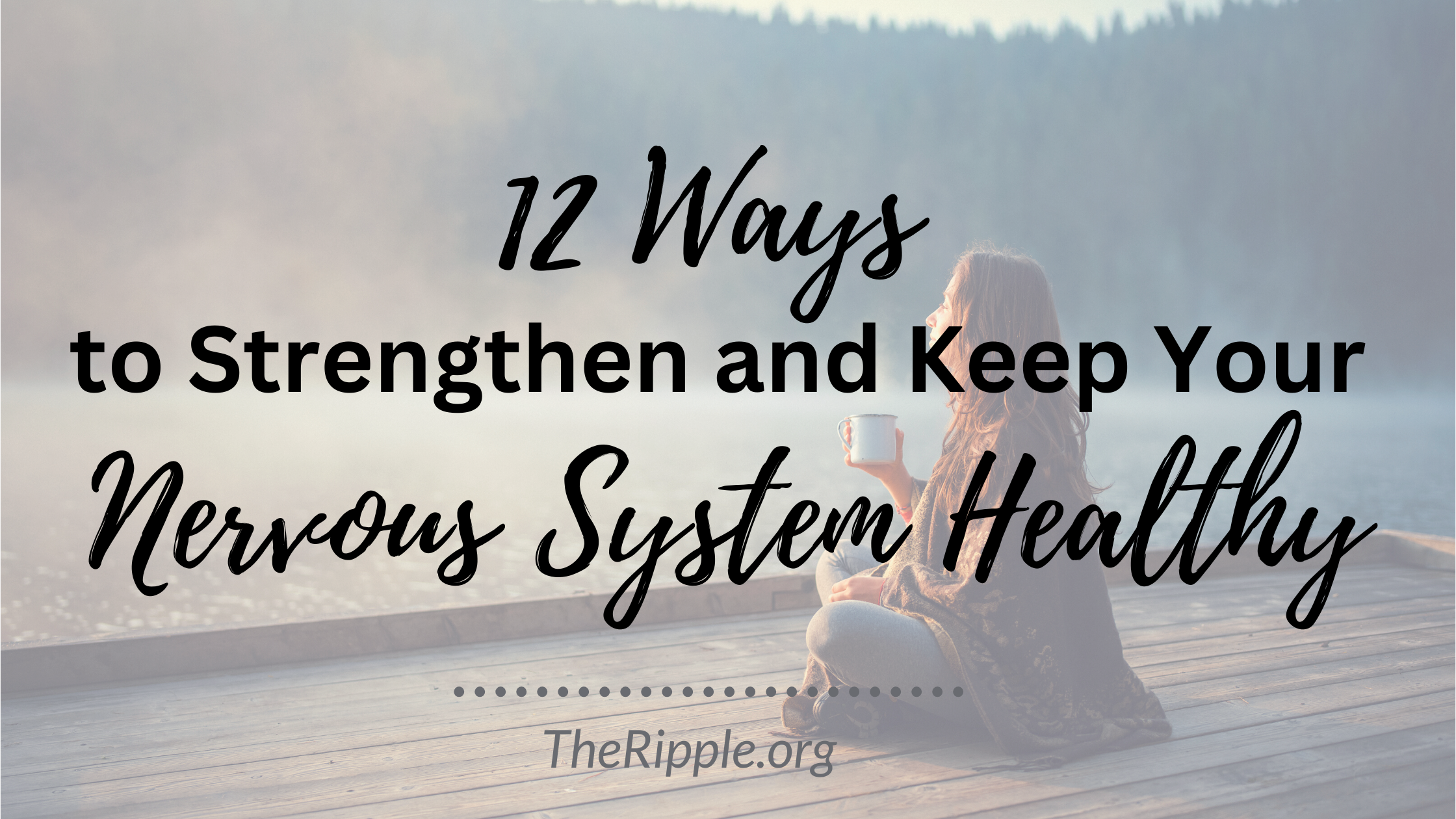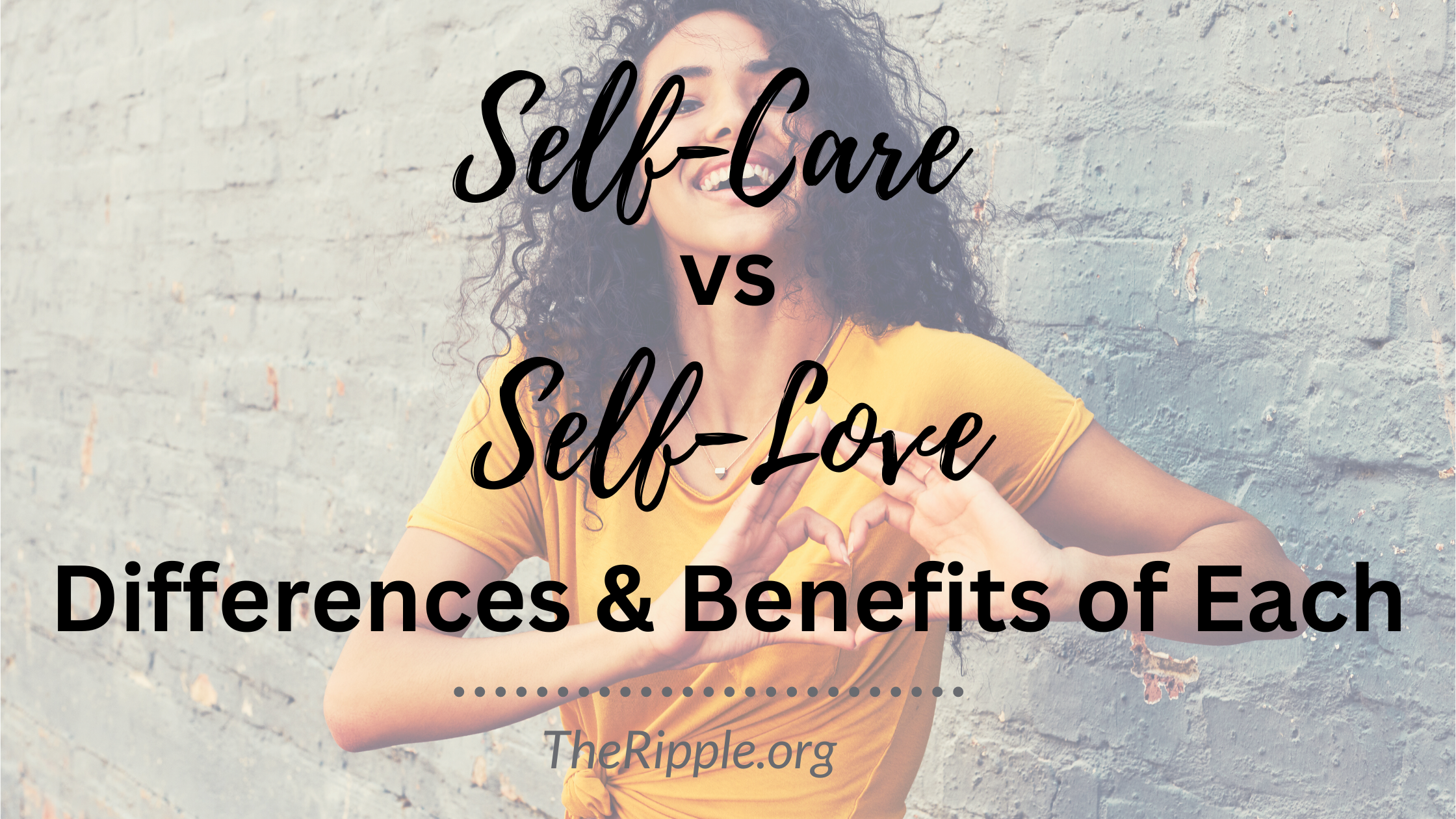Life moves fast. There’s always something pulling at our attention — the deadlines, the texts, the endless to-do lists. And that’s just daily life. Add in traumatic experiences or long seasons of chronic stress, and suddenly your body feels like it’s living on edge, no matter how hard you try to “relax.”
Here’s the good news: your nervous system can heal. It’s not broken. When you learn how to work with it, you don’t just feel calmer in your body — you expand your capacity for confidence, connection, and yes, even wealth.
In this post, I’ll walk you through 13 powerful practices to support nervous system regulation, calm your stress response, and help you thrive in all areas of life.
How the Nervous System Works
The first step in any healing journey is understanding what’s actually going on inside your body.
Your nervous system is your body’s command center. It’s made up of your central nervous system (your brain and spinal cord) and your peripheral nervous system (the vast network of nerves that carry sensory information back and forth). Together, these systems decide how you respond in different situations — whether you’re calm and present, anxious and reactive, or shut down completely.
The Somatic Nervous System
The somatic nervous system is the part you control on purpose — things like walking, talking, or dancing in your kitchen. Through simple somatic practices like yoga, stretching, or mindful movement, you can actually influence how safe and grounded you feel in your own body.
The Autonomic Nervous System
The autonomic nervous system runs in the background, regulating things like breathing, digestion, and heart rate. It also plays a huge role in emotional regulation.
It has two main branches:
- Sympathetic nervous system: This is your “gas pedal.” It sets off the fight or flight response, flooding you with stress hormones and putting you on high alert during stressful situations. Helpful in emergencies, but draining when it becomes your daily default.
- Parasympathetic nervous system: This is the “brake pedal.” It supports rest and digest, recovery, and calm. Inside this parasympathetic system, Polyvagal Theory identifies two states:
- Ventral vagal: where you feel safe, connected, open to possibility.
- Dorsal vagal: a survival mode state that shows up as shutdown, numbness, or just going through the motions.
The Vagus Nerve
The vagus nerve is like your body’s reset button. It runs through much of your body and impacts digestion, immunity, and your ability to relax. When your vagal tone is strong, you can return to balance quickly after stressful events. When it’s weak, you’re more likely to notice physical symptoms like gut issues, fatigue, or even chronic pain.
Trauma and the Nervous System
We tend to picture trauma as something catastrophic, but traumatic events can also be subtle and ongoing: constant criticism, neglect, instability. Childhood trauma especially sets the baseline for how your nervous system responds later in life.
Because trauma lives in the body, it often shows up in ways you don’t connect at first: anxiety, avoidance, tension headaches, or other physical symptoms. It can keep you on high alert, stuck in survival mode, long after the threat has passed.
Money trauma is no different. Growing up around scarcity, fights about finances, or being made to feel unworthy of receiving can leave a deep imprint. Later, that might look like overworking, undercharging, or guilt about wealth.
The root cause of these patterns isn’t weakness. It’s dysregulation. The healing process is about calming stress hormones, building resilience, and creating enough safety in your body to expand into new levels of freedom — including financial freedom.
13 Ways to Heal and Regulate Your Nervous System
1. Deep Breathing
Breathwork is one of the most powerful tools you have. A simple one to try is box breathing: inhale for 4, hold for 4, exhale for 4. This stimulates the vagus nerve, reduces stress hormones, and supports cognitive function. Practicing deep breathing before a presentation, conversation, or financial decision helps you feel grounded and steady.
2. Move Your Body
Exercise helps balance the sympathetic nervous system and parasympathetic nervous system. It lowers cortisol, boosts endorphins, and supports both physical health and emotional health. Movement also strengthens your immune system and improves brain function. The best form of movement is the one you’ll actually do — walking, yoga, martial arts, or strength training all support your healing journey.
3. Maintain a Healthy Diet
The food you eat impacts your nervous system more than most people realize. A nutrient-rich diet supports nerve cells, the immune system, and overall physical health. Whole foods reduce inflammation and improve brain function, while processed foods and sugar tend to keep your body on high alert. Nourishment also influences emotional regulation and clarity with money choices.
4. Nourish Body and Soul
Food is also emotional. Choosing foods that truly support you signals safety to your body, reduces chronic stress, and supports both emotional health and cognitive function. Nourishing yourself becomes an act of self-respect — and that energy carries into how you show up everywhere else.
5. Create Daily Rituals of Relaxation
Simple practices like progressive muscle relaxation, guided imagery, or journaling help regulate your system. These rituals widen your window of tolerance — the range where your nervous system can handle challenges without tipping into overwhelm or collapse. The wider your window, the easier it is to move through stressful events without spiraling. These practices remind your body it’s safe, which builds confidence in every part of your life, including with money.
6. Prioritize Restorative Sleep
Sleep is one of the best ways to support nervous system regulation. During rest, your brain consolidates memory, repairs tissues, and recalibrates stress hormones. Poor sleep disrupts emotional regulation, weakens the immune system, and impairs cognitive function. A consistent bedtime routine is one of the most powerful tools you have.
7. Practice Mindfulness Meditation
Mindfulness trains your brain to notice without judgment. Over time, it lowers stress hormones, strengthens emotional regulation, and boosts brain function. Even 10 minutes a day helps you stay grounded in stressful situations — including the ones tied to money.
8. Spend Time in Nature
Nature has a way of bringing us back to ourselves. Time outdoors lowers cortisol, strengthens the immune system, and restores calm. Spending time in nature during times of stress can help reset your nervous system and shift perspective.
9. Sound Therapy
Sound can be powerful medicine. Things like binaural beats, bilateral stimulation, or calming music influence brain waves and help quiet racing thoughts. It’s a simple way to reduce stress hormones and support your healing journey.
10. Laughter Therapy
Laughter is one of the best antidotes to chronic stress. It boosts endorphins, lowers cortisol, and loosens tension in the body. Plus, joy naturally expands your capacity for connection and wealth.
11. Aromatherapy
Essential oils like lavender, bergamot, or sandalwood engage the limbic system — the emotional center of the brain. Aromatherapy supports relaxation, enhances emotional health, and encourages the body’s rest and digest state.
12. Positive Social Interactions
Connection regulates. Safe, supportive relationships release oxytocin and serotonin, which strengthen both emotional health and physical health. Isolation fuels dysregulation, while connection expands your sense of safety. This is often what helps heal layers of childhood trauma too.
13. EFT Tapping
EFT tapping is a somatic tool that helps calm the body, reduce anxiety, and shift limiting beliefs. By tapping on meridian points while focusing on fears or stressors (including money), you lower stress hormones and support nervous system regulation. Research shows it’s one of the most powerful tools for regulation and healing.
A Healthy Nervous System = Wealth Capacity
A healthy nervous system doesn’t mean you’ll never feel stressed. It means you can move through it and return to balance more easily. That’s resilience.
When your system is regulated:
- Cognitive function is sharper.
- Emotional regulation is stronger.
- Physical health improves.
- You feel safe enough to take aligned risks.
- You expand your ability to hold and grow wealth.
The healing process takes time, but every step you take builds resilience. Working with a somatic practitioner can help address the root cause of dysregulation and support your unique healing journey.
👉 Your nervous system is your body’s command center. When you learn how to calm the nervous system and build regulation, you don’t just heal — you expand your capacity for wealth, safety, and joy.
Frequently Asked Questions
1. What are the common symptoms of a dysregulated nervous system?
Things like anxiety, gut issues, poor sleep, low energy, chronic pain, or feeling stuck in survival mode are common signs.
2. How long does the healing process take?
It varies. Some people notice changes within weeks of practicing nervous system regulation, while deeper patterns from traumatic experiences or childhood trauma may take longer. The key is consistency.
3. Can this kind of work really improve physical health?
Yes. A regulated system lowers stress hormones, strengthens the immune system, and reduces inflammation. Many people see improvements in digestion, energy, sleep, and overall brain function.
4. How does nervous system regulation affect money?
Financial stress registers in the body just like any other stressful events. When you’re dysregulated, scarcity patterns and fear of risk often take over. When you’re regulated, you can make money decisions from clarity and confidence instead of fear.
Karla is a certified somatic practitioner who helps women heal their nervous system and transform their relationship with money and wealth.





